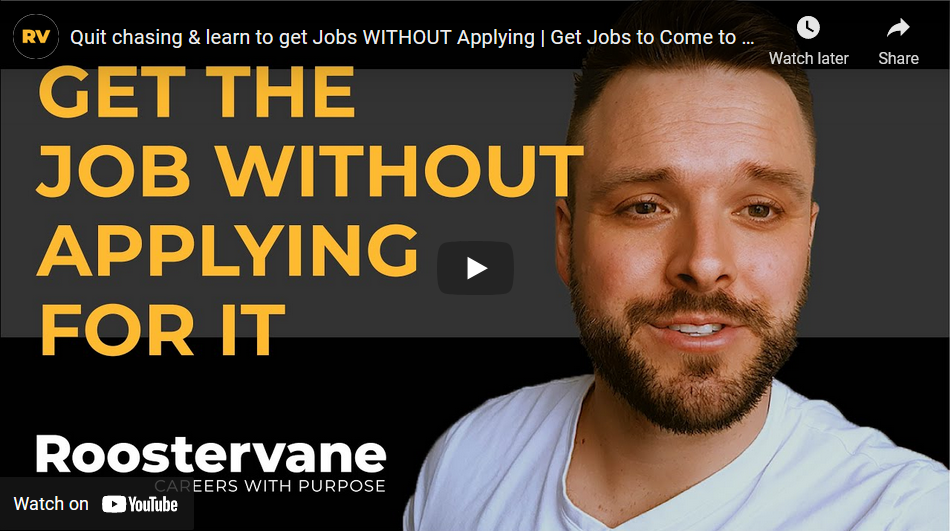Last night, I put a call out on Twitter for people’s top questions about post-PhD work (specifically non-academic).
I'm writing a post of answers to the top questions #phd students have about working non-academic careers (#altac). 👷♀️👮♀️👩🔬👩💼
— Chris Cornthwaite, PhD (@cjcornthwaite) December 7, 2019
What's the top thing you wish you knew about working outside of uni? 🎓@AcademicChatter #phdlife @PhDForum
I got some really good questions about post-PhD work, and I’ll try to answer them here. For a few of them, I’ve rephrased the question. I hope the authors will forgive me and that I’ve represented their intent well.
So without further ado…
This post may contain links to affiliate products, which–if you choose to purchase–pay us a commission at no extra cost to you. This helps to support our work. We only promote products we’ve used and love.
1. What type of jobs can you get fresh out of grad school?
You can get any job that you can convince an employer to give you, and the list is long.
However, there are discipline-specific variations. STEM PhDs can often get fantastic jobs out of grad school working with their specific skills and doing things like developing new drugs, leading teams of scientific researchers, designing bridges… you name it. The STEM transition is occasionally shorter and more lucrative, because they have skills that CAN be what companies are looking for.
There’s a pretty good list of STEM options here.
For other PhDs it can be trickier. Mine is in the Humanities (Religious Studies). If I had known better during my PhD, I could have positioned myself to have a much more advanced position from the start (see the question below). But as it was, I had very limited experience. My first job was more entry-level than I wanted, but it built my skill set fast. It was a trial by fire. I ran big multi-stakeholder policy projects, organized round-tables, and wrote policy reports. I got the job as a contract, because they desperately needed someone, and I proved myself.
But in general you can get any type of job you want, and if you follow the advice below hopefully you’ll start further ahead than I did.
Here are a few posts I’ve written on this:
11 places in the real world that pay PhDs to research
3 Amazing and Well-Paying Career Paths for PhDs
2. Are entry level jobs what I should be applying for?
Not necessarily.
I would ask myself three questions.
- Is my subject-specific knowledge valuable in the marketplace?
- Are my generic skills valuable in the marketplace?
- What knowledge or skills do I need to develop to get to where I want to go?
Obviously, it helps here to know where you want to go. Which I didn’t. But bear with me.
If you currently have subject-specific knowledge or generic skills that are valuable, you can apply for jobs that require them. Reach as high as you want. Or, you can try to develop some of these before you leave your PhD.
My research was on antiquity, but I started learning about modern migration theory and economics and worked it into my dissertation. Therefore my PhD work became on migration and religion, with some theories of migration and trade thrown in. All of a sudden, it’s relevant.
Remember there’s no absolute law that defines who can do a job (outside of regulated professions). If an employer thinks you can manage a division of 50 employees, you can. But, even if you got this job, if you didn’t have the skills to do it you might crash and burn.
So I think it’s about building both your skill set and your brand in whatever increments you can add: run a project, learn a language (relevant in Canada where bilingualism is a plus), manage someone. This all sets you up for success, and each additional skill or experience you can add make it more likely that you’ll start higher up the ladder.
The final thing I’d say is that networking will launch you past entry-level jobs. If you present well (and yes do all you can to present well) at a coffee with a prospective employer, they might take a chance on you. If someone refers you, you might get an interview, even if you’d never have gotten the job on paper. This has happened to me a lot.
Job hunting isn’t a perfect science.
3. What PhD skills make you a great candidate for an NGO?
This is a big question, but let me answer according to my experience working with (but not working for) NGOs. NGOs do, of course, hire people to do research. But in general, I would say that the much more valuable skills from your PhD work might be project management and grant writing.
Most big NGOs have programs in everything from maternal health to planting seeds. These programs need people to run and coordinate them. They take leadership and project management skills, which you can develop in your PhD work. Some NGOs run on grants or various types of funding which require application, which is why I also think grant writing can be a plus for NGO work. If you can learn how to get money, you’ll be valuable.
NGOs also have a lot of stakeholder-relations type work. So lets say in your PhD you ran a research project that coordinated relationships with local service organizations and government (just spitballing here). That type of relationship management is important and would set you up for NGO work.
Last–and definitely not least–your research itself might be relevant to NGOs. If your PhD work is in international development, international relations, immigration, or gender studies, there’s a good chance your subject-matter knowledge will bring value too.
4. Which of my skills is relevant?
This is such an important question! So many PhDs have their resume and LinkedIn full of papers they’ve published, awards they’ve won, or descriptions of their research. But many don’t ask themselves this question.
While I wouldn’t say you necessarily need to delete all the academic accomplishments, remember that an employer’s question is always “how does she help me?” “What can he do for my organization that will make our work better and my life easier?” “What value do they add?”
Any skills you develop in your PhD work might be relevant to a potential employer. But it is important, in thinking about transferable skills, to recognize what the employer needs.
Basically, you need to find what you have to offer that brings value to the marketplace. That solves an employer’s pain. Pains like:
- I can’t get these projects done on time
- These reports are never well-written
- This work needs a subject-matter specialist
You might fit into any of these. So take an inventory of the skills you have that might be useful to solve these problems. Coming back to the academic accolades, if you re-frame your prestigious fellowship as “my grant writing won $105K of research funding,” that would mean something to a lot of employers that “I won the McKay-Briggins Fellowship” doesn’t.
Check out the related post:
8 Ways to Maximize Your Transferable Skills
5. What’s the best thing I can do in grad school to set me up for a post-ac career?
If you were only going to do one thing, network.
This would mean doing “informational interviews,” where you pick people who have interesting jobs and ask them out for coffee or to have a phone conversation. Start with people you know in your network already. Then choose new people on LinkedIn or Shapr and reach out to them. This is probably the biggest little thing you can do that will rocket your career forward.
If you had time to do more than one thing, build your complementary skill sets–especially leadership skills. (NB I’m not saying to fill your schedule so full you never finish your PhD work. Get it done!) But if you are doing other things, do work that develops your leadership skills. Now I don’t know if running for student council does much, so that’s not what I mean. What I’m thinking is: run projects, manage events, lead on grants. These types of skills build your credibility outside of the academy (and inside too).
6. Do I relocate first or wait until I have a job?
This is a tough one to answer. I chose to relocate first, to a market where I knew there was work.
I didn’t know anyone.
I started applying for jobs months before I arrived, but I didn’t get a sniff. However, once I arrived and started networking like crazy, I had a job within 2 months.
There’s not really one way to do it, but if you know where you’re going to end up and you have the means to get there, it might be worth taking the leap. But keep applying, by all means.
7. How can you get web-based contract work for employers who aren’t in your area?
I know there are a ton of online platforms where you might be able to find some work. There are those like Flexjobs and Upwork that connect workers to contracts.
Otherwise, it would depend on a few things. Do you have a network of people somewhere that you can tap into? If I left Ottawa today, I suspect I could probably do web-based contract work, since I now have a network that knows me and my work and would hire me.
If you don’t have this type of network, you might be able to cultivate one from afar. It’s an interesting challenge. I would suspect it would take a good website with some decent samples of your work, probably a great LinkedIn page, and a strategy to engage potential clients. I won’t write much more about it here, but it’s an interesting challenge!
Conclusion
So there are the answers to 7 Twitter questions about turning your PhD into a job. I hope they were helpful, and I might do another one if I get more questions rolling in. Feel free to ask any follow-up questions either in the comments below or on Twitter or LinkedIn.
Read More:







